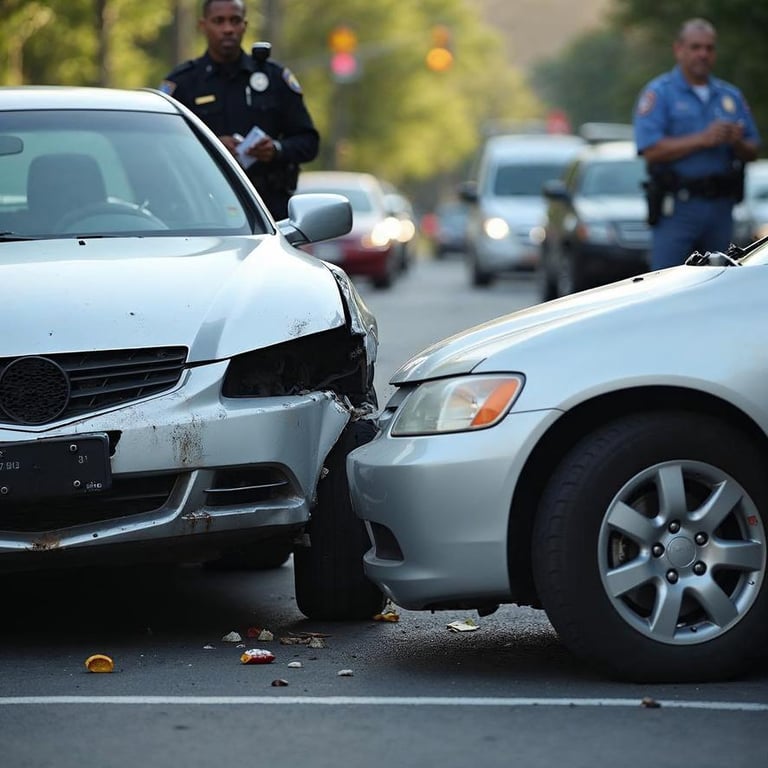
Unfortunately, based on your response, you may not qualify to file a claim. Most personal injury cases must be filed within two years of the accident, in accordance with the statute of limitations. Please consult with a licensed attorney to explore any possible exceptions or additional options.
Rear-end collisions are among the most common types of car accidents on Durham’s busy roads and highways. These crashes typically occur when one vehicle strikes the back of another. Understanding the causes, possible injuries, and the claims process can help victims in Durham seek fair compensation and take appropriate steps following an accident.
Several factors contribute to rear-end collisions in Durham, including distracted driving, tailgating, sudden stops, poor weather conditions, and speeding. Distracted driving, such as texting or talking on the phone, significantly increases the chances of a driver failing to notice slowing or stopped traffic ahead. Tailgating reduces the time a driver has to react, leading to crashes when the vehicle in front brakes suddenly.
Weather conditions like rain or fog can reduce visibility and road traction, making it harder to stop in time. Speeding also decreases a driver’s ability to respond quickly to traffic changes, increasing the risk of rear-end collisions. Drivers should always maintain a safe following distance and stay alert to prevent such accidents.
Rear-end collisions can range from minor fender-benders to serious crashes causing significant injuries and property damage. Common injuries include whiplash, back and neck pain, concussions, and more severe trauma. Even seemingly minor rear-end collisions may result in delayed symptoms that require medical treatment.
Beyond physical injuries, these crashes can lead to emotional distress, lost wages due to time off work, and expensive vehicle repairs. Timely medical evaluation and treatment are essential for documenting injuries that arise from the collision.
After a rear-end collision, it is important to document the accident properly for insurance and claim purposes. Victims should gather information about the other driver, take photos of the accident scene and damage, and seek medical attention if necessary.
For more detailed guidance, reviewing resources such as what to document after a car wreck can be invaluable. This helps ensure all essential details are collected to support your claim efficiently.
Filing a claim after a rear-end collision involves submitting evidence and documentation to the insurance company. It is important to understand the types of insurance coverage that may apply, including liability and personal injury protection. Being knowledgeable about what insurance covers can help victims navigate the complexities of claim approval.
Insurance adjusters will evaluate the facts of the accident, medical records, and damage reports. Promptly providing accurate information helps reduce delays and supports a fair settlement offer.
In many rear-end collisions, the driver who struck the vehicle in front is presumed at fault. However, liability can vary if other factors contributed to the crash. For complex cases, exploring detailed explanations about liability in multi-car collisions might be beneficial.
Drivers in Durham can take specific safety measures to reduce the risk of rear-end crashes. Maintaining an adequate following distance, paying full attention to the road, obeying speed limits, and adjusting for weather conditions are critical preventive steps.
Staying attentive and cautious on the road helps protect yourself and other drivers from the consequences of rear-end collisions.
Understanding the causes, impact, and claims related to rear-end collisions in Durham, North Carolina is key to managing the aftermath effectively. Careful documentation and awareness of insurance coverage can improve the claims process and help secure rightful compensation.
For authoritative information about safe driving practices and crash statistics, visit the National Highway Traffic Safety Administration.
Unfortunately, based on your response, you may not qualify to file a claim. Most personal injury cases must be filed within two years of the accident, in accordance with the statute of limitations. Please consult with a licensed attorney to explore any possible exceptions or additional options.